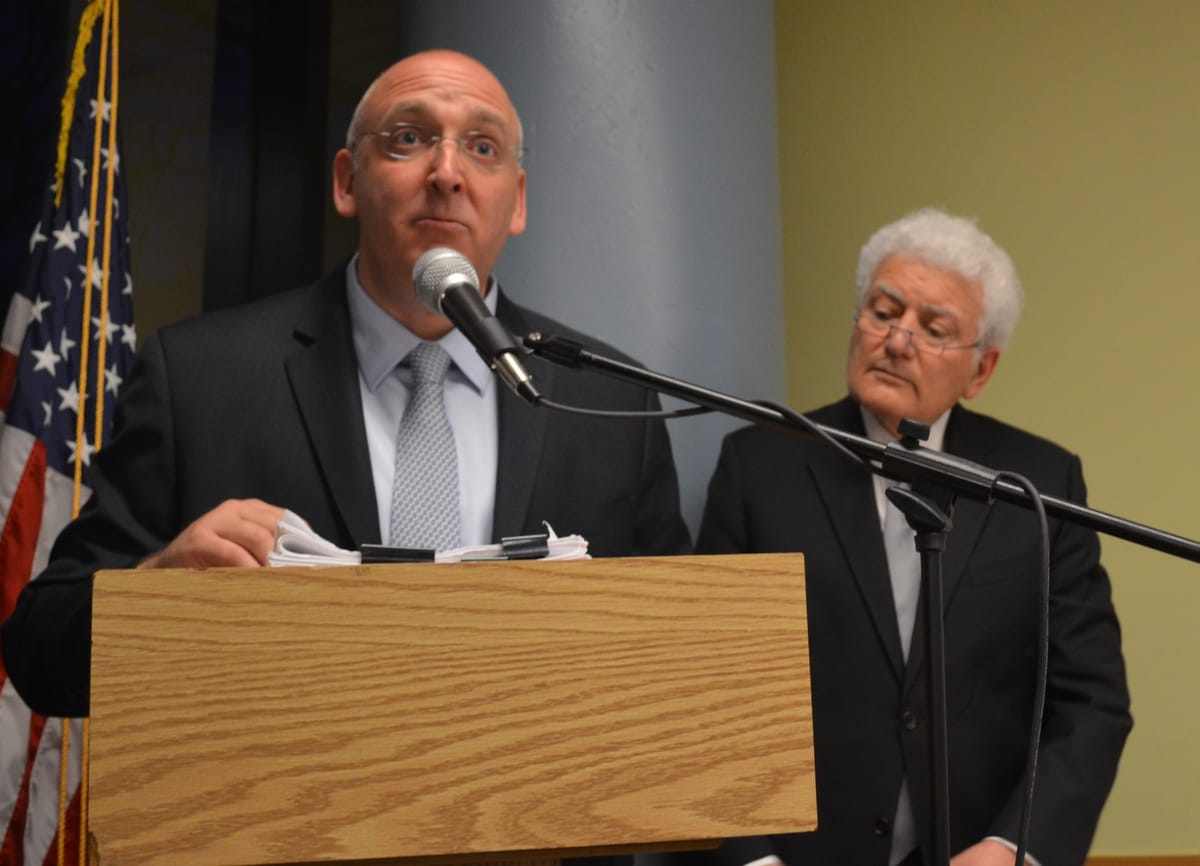Developers Accused Of ‘Subterfuge’ For Trying To Dodge Parking Regulations


Community Board 15 members had strong words Tuesday night for two developers seeking to maneuver around minimum parking requirements.
Presentations for two office buildings — one at 2619 East 16th Street and another at 902 Quentin Road — drew rebukes from board members, who accused the property owners of trying to sneak around the zoning laws. The strongest criticisms came against the Quentin Road facility, an eight-story office building located near East 9th Street, that applied to eliminate its first-floor garage and cut the number of off-street parking spaces in half.
Board members hammered the developer for being disingenuous in its request. They pointed out the first floor of the building was constructed to look like a commercial space instead of a garage, indicating property had been designed with the intent to eventually shed its above-ground parking.
“This application is subterfuge,” said community board member Morris Harary. “Had they come to the board with this application in the first instance, this building would not have been built.”
Eric Palatnik, the lawyer representing the property owners at the meeting, acknowledged it was always the developer’s intent to remove the garage from the first floor.
“It was designed with this phase coming,” he said. “But there’s no subterfuge. You can can have the intention of doing something in the future and setting the foundation for it.”
Palatnik also said the first floor garage (the rest of the parking is below ground) is being underutilized. The spaces only available to tenants and their customers, and Palatnik pointed to a study conducted by the property owners that found only 20 percent of the first-floor parking spaces are being used.
However, others in the audience, who live or work nearby, said private parking signs posted outside the building turned away motorists who came to use the building. They also accused the property owner of closing the garage gate in order to keep drivers out.
“I didn’t even know there was parking in that building. And we’ve been there for two years,” said Philip Nuzzo, executive director of the Kings Highway BID. “This was a duplicitous thing that should be rejected out of hand.”
Ultimately, the community board’s Zoning and Variance Committee voted 14 – 1 to reject the application. The committee’s vote will be presented at the next board meeting, where all 50 members will determine whether to support the proposal.
The committee also voted 13 – 2 to block a developer seeking to waive all parking requirements for a six-story office building to be constructed beside Anatolian Gyro on East 16th Street. The property, which is currently occupied by a two-story home, was purchased in 2013 by Elijah Realty for almost $500,000. The owners want to demolish the house to construct a new building, which will host offices and healthcare facilities.
Palatnik, who also made the presentation for the East 16th Street propery, explained the developer wants the board to support their request to reduce the number of parking spaces from 29.96 to 14.98 so they can seek a waiver allowing them to eliminate parking completely.
“Here’s the part of the application you may not like,” Palatnik said. “Once you cut the amount of parking to that number [less than 15], there’s a waiver provision in the Department of Buildings that says if you have less that 15 spaces, you don’t need to provide any.”
Several community board members voiced opposition to the plan. They pointed out the block is used by two bus lines, which already eliminates parking on one side of the street. Furthermore, they argued the ambulettes and cars that drop off patients would cause intolerable traffic congestion.
“You would create total gridlock on that street,” said community board member Maurice Kolodin.
Palatnik said the exemptions had been written for a reason and developers have every right to pursue them.
“People are entitled to make that application, that’s why we did it,” he said. “Legislators saw that people in the city should be able to build in a certain way.”



